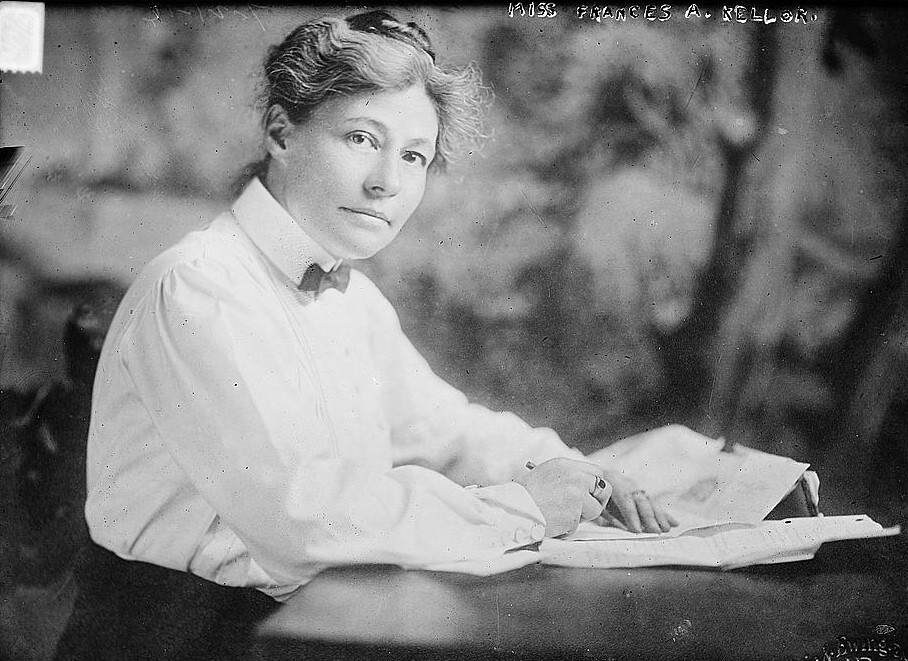What is Americanization? (1919)
Famous Frances Kellor Quotes
What is Americanization? (1919)
What is Americanization? (1919)
What is Americanization? (1919)
What is Americanization? (1919)
What is Americanization? (1919)
Frances Kellor Quotes about men
What is Americanization? (1919)
What is Americanization? (1919)
What is Americanization? (1919)
Context: When the country first tried in 1915 to Americanize its foreign-born people, Americanization was thought of quite simply as the task of bringing native and foreign-born Americans together, and it was believed that the rest would take, care of itself. It was thought that if all of us could talk together in a common language unity would be assured, and that if all were citizens under one flag no force could separate them. Then the war came, intensifying the native nationalistic sense of every race in the world. We found alien enemies in spirit among the native-born children of the foreign-born in America; we found old stirrings in the hearts of men, even when they were naturalized citizens, and a desire to take part in the world struggle, not as Americans, but as Jugo-Slavs or Czecho-Slovaks. We found belts and stockings stuffed with gold to be taken home, when peace should be declared, by men who will go back to work out their destinies in a land they thought never to see again. We found strong racial groups in America split into factions and bitterly arraigned against one another. We found races opposing one another because of prejudices and hatreds born hundreds of years ago thousands of miles away. We awoke to the fact that old-world physical and psychological characteristics persisted under American clothes and manners, and that native economic conditions and political institutions and the influences of early cultural life were enduring forces to be reckoned with in assimilation. We discovered that while a common language and citizenship may be portals to a new nation, men do not necessarily enter thereby, nor do they assume more than an outer likeness when they pass through.
What is Americanization? (1919)
Context: Every man lives in his neighborhood, and beyond his home and his job. To most men, except in the largest cities, the municipality is interpreted in terms of his neighborhood. Few men get beyond this except through occasional excursions into the larger world. America is a country of parallel neighborhoods; the native American in one section and the immigrant in another. Americanization is the elimination of the parallel line. So long as the American thinks that a house in his street is too good for his immigrant neighbor and tolerates discriminations in sanitation, housing, and enforcement of municipal laws, he can serve on all Americanization Committees that exist and still fail in his efforts. The immigrant neighborhood is often made up of people who have come from one province in the old country. Inevitably the culture of that neighborhood will be that of the old country; its language will persist and its traditions will flourish. It is not that we undervalue these, or desire to discredit them. But separated from the land and surroundings that gave them birth, from the history that cherishes them, they do not remain the strong, beautiful things they were on the other side. These aliens may retain some of the form of culture of the land of their birth long after its spirit has departed or has lost its savor in a new atmosphere. New opportunities, strange conditions, unforeseen adjustments, necessary sacrifices, and forces unseen and not understood affect the immigrant and his life here, and unless this culture is connected and fused with that of the new world, it loses its vitality or becomes corrupt.
What is Americanization? (1919)
What is Americanization? (1919)
Frances Kellor Quotes about life
What is Americanization? (1919)
What is Americanization? (1919)
What is Americanization? (1919)
What is Americanization? (1919)
What is Americanization? (1919)
What is Americanization? (1919)
Frances Kellor Quotes
Today these basic points are disregarded and it is thought that committees and community councils piled high upon one another will do the work. The chief value of most of such organizations is in educating the native-born American; there is abundant evidence that the foreign-born adult is not greatly drawn to this country as a result of them.
What is Americanization? (1919)
What is Americanization? (1919)
What is Americanization? (1919)
What is Americanization? (1919)
What is Americanization? (1919)
What is Americanization? (1919)
What is Americanization? (1919)
What is Americanization? (1919)
What is Americanization? (1919)
What is Americanization? (1919)
What is Americanization? (1919)
What is Americanization? (1919)
What is Americanization? (1919)
What is Americanization? (1919)
What is Americanization? (1919)
What is Americanization? (1919)
What is Americanization? (1919)
What is Americanization? (1919)
What is Americanization? (1919)
